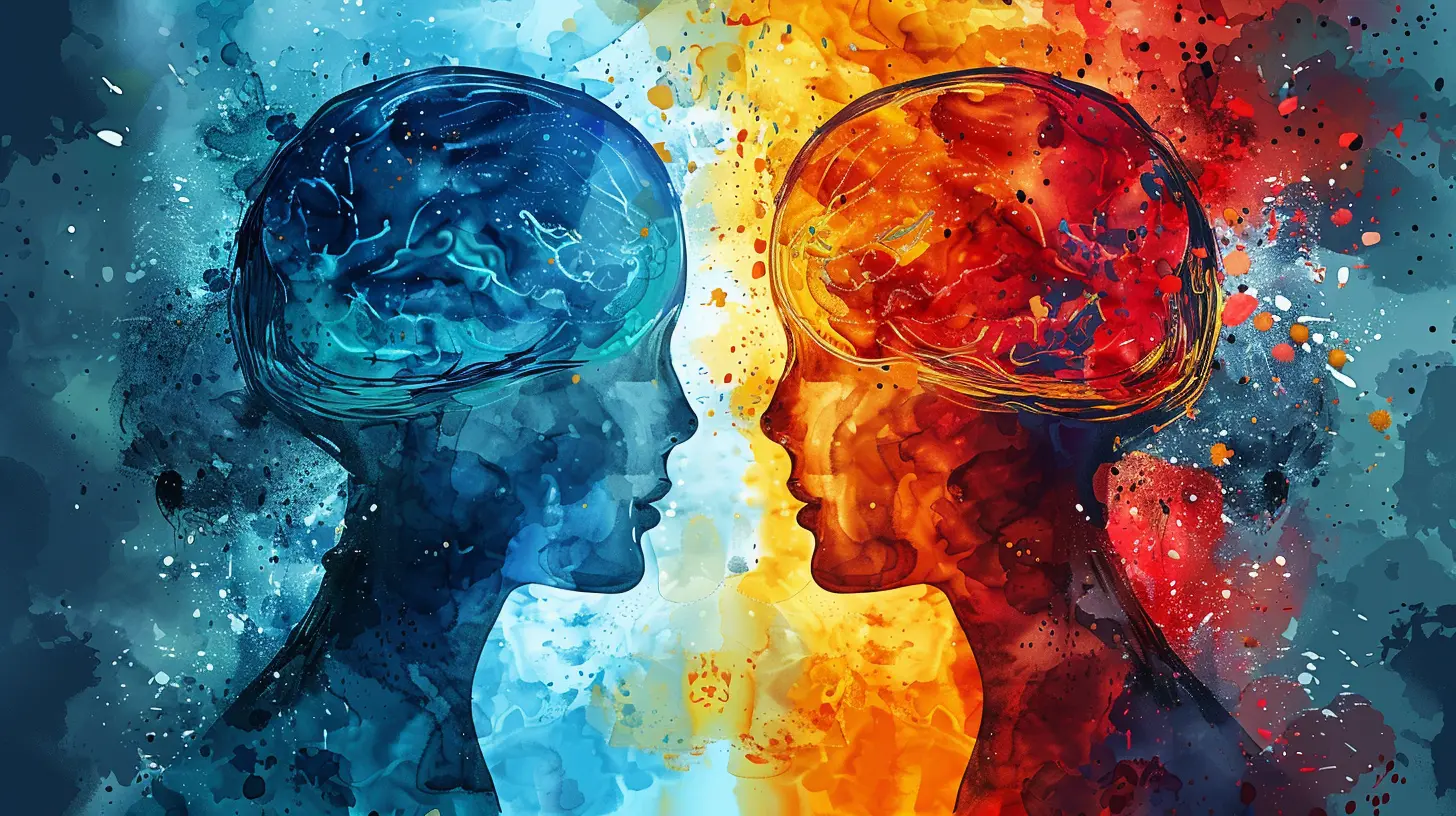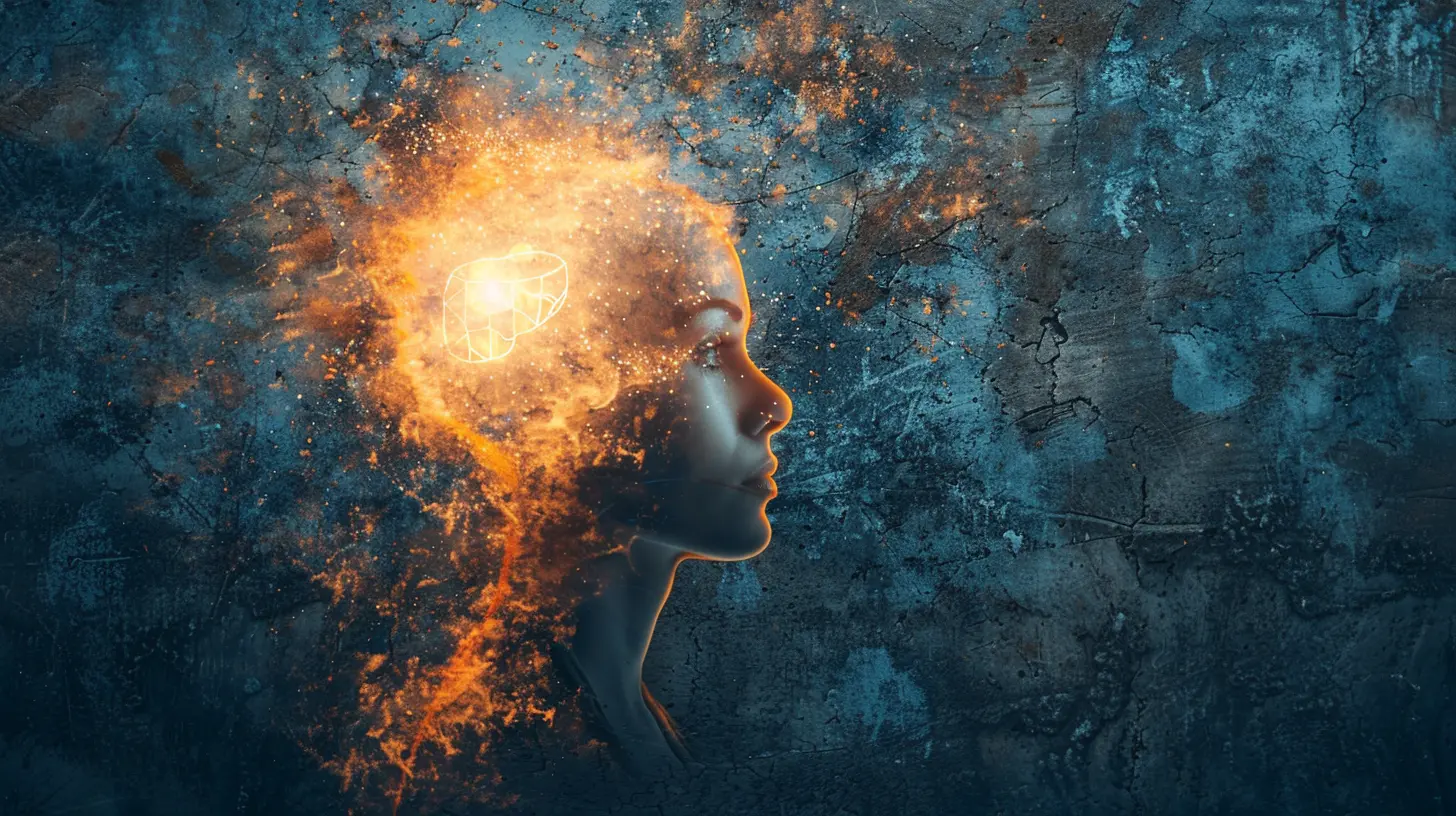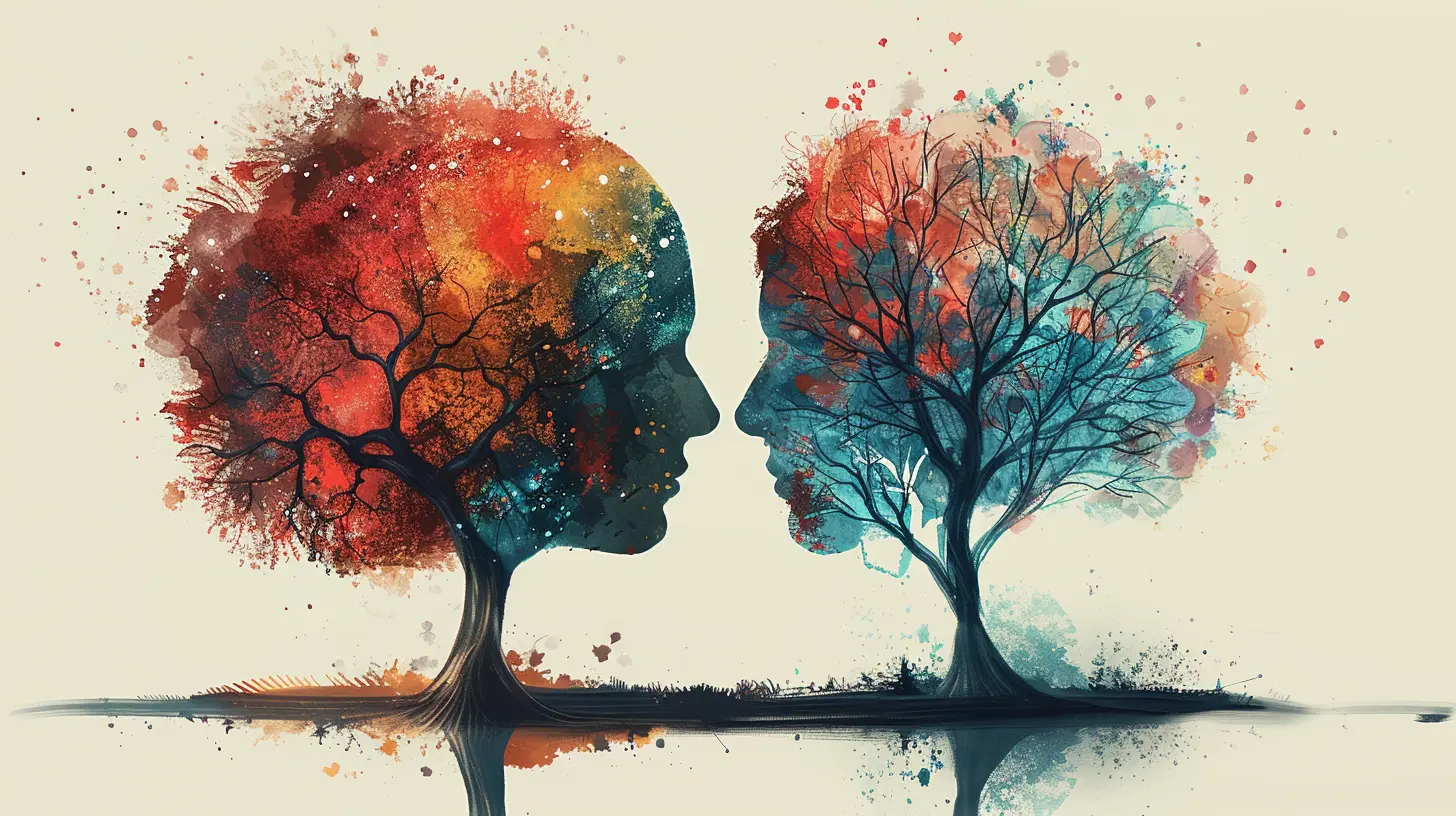"The Link Between Emotional Intelligence and Critical Thinking
7 June 2025
Ever tried solving a tough problem while you’re super angry? Or made a decision you later regretted just because you were too emotional in the moment? Yeah, we’ve all been there. That’s where emotional intelligence and critical thinking come into play—and not just individually, but how they work together. If you’ve been wondering whether your emotions mess with your thinking or help shape better decisions, then this one’s for you.
Let’s peel this onion together and explore how emotions and logic aren’t rivals—they’re partners in the dance of good decision-making.
What Is Emotional Intelligence, Anyway?
Before we dive deep, let’s make sure we’re on the same page.Emotional Intelligence (EI) is the ability to recognize, understand, manage, and influence your own emotions and the emotions of others. Think of it as your inner emotional compass. It's what helps you keep your cool when things get heated or empathize when someone else is struggling.
Daniel Goleman, a big name in this field, breaks EI down into five components:
- Self-awareness: Knowing what you're feeling and why
- Self-regulation: Managing those feelings constructively
- Motivation: Channeling emotions to meet goals
- Empathy: Understanding other people's emotions
- Social skills: Managing relationships effectively
So yeah, it’s a pretty big deal—not just for wellness or relationships, but for actual decision-making and thinking. Which brings us to…
What’s Critical Thinking All About?
Okay, critical thinking might sound like one of those academic buzzwords that gets thrown around a lot, especially in classrooms or boardrooms. But it’s basically this:> Critical thinking is the ability to think clearly and rationally, understanding the logical connection between ideas.
Let’s break that down into real-world terms:
- Questioning things instead of taking them at face value
- Looking at evidence, not just opinions
- Avoiding snap judgments
- Solving problems methodically and logically
So while one is emotional (EI), and the other is logical (CT), they’re not diametrically opposed. In fact, they complement each other beautifully.
Why Should We Care About Their Connection?
Here’s the thing—you can have all the facts in the world, but if you can't manage your emotions, you might still make poor decisions. On the flip side, if you're emotionally tuned in but lacking analytical skills, you might be swayed too easily.Let’s say you're a student deciding whether to take on a tough course. Sure, the critical thinker in you weighs the pros and cons—but what if fear (an emotion) clouds your logic? Or maybe excitement (another emotion) leads you to take on too much?
This is where emotional intelligence steps in. It helps you recognize that you're scared or overexcited. Then critical thinking helps you evaluate if your emotional response is justified and decide what to do about it. Together—they’re unstoppable.
Emotional Intelligence as a Foundation for Better Thinking
1. Self-Awareness Enhances Objectivity
Imagine trying to solve a math problem while you're frustrated. Your brain’s focus is split—half on the problem, half on the annoyance. But if you're self-aware, you can hit pause, take a breath, and come back with a clear head.Self-awareness helps you ask, “Am I thinking logically, or am I reacting emotionally?” That pause? That’s gold for critical thinking.
2. Emotional Regulation Prevents Cognitive Bias
Cognitive biases are those sneaky little mental shortcuts our brains take—often influenced by emotions. If you're upset, you might catastrophize ("Everything is falling apart!") or use confirmation bias ("See? This always happens to me!").Emotional regulation helps you manage those biases. It’s like having a filter that catches distorted thoughts before they run the show.
How Emotions Can Actually Boost Critical Thinking
Let’s not throw emotions under the bus. They’re not always the villains in logical reasoning. In fact, some research shows that certain feelings—such as curiosity, compassion, or even mild frustration—can actually spark better analysis.Emotions as Data
Instead of treating emotions as noise, what if we treated them like data?Say you feel uneasy about joining a group project. Instead of dismissing that emotion, a critically thinking brain says: “Hmm, what’s making me uncomfortable? Past experience? Group dynamics? Workload?”
That emotion becomes a clue—not a conclusion. You don’t instantly act on it, but you use it to dig deeper. That’s the sweet spot where EI and CT meet.
The Role of Empathy in Problem Solving
We often think of empathy as a soft skill—great for therapists and teachers. But it’s also a secret weapon in critical thinking.Let’s say you’re analyzing a social issue in a research paper. Pure logic might offer one solution. But empathy helps you understand perspectives beyond your own experience. It urges you to ask, "How will this impact different communities?"
This mix of rational evaluation and emotional understanding leads to more comprehensive, fair conclusions.
The Neuroscience Behind the Link
Still skeptical? Let’s get a little nerdy for a second.The prefrontal cortex—the part of your brain responsible for higher-order thinking like reasoning and decision-making—works closely with the amygdala, which processes emotions.
When you experience strong emotions, the amygdala fires off rapidly. But your prefrontal cortex steps in to evaluate those signals. The more emotionally intelligent you are, the better your brain gets at regulating emotional triggers and turning them into thoughtful responses rather than impulsive reactions.
So there’s literally a biological connection between emotional control and critical reasoning.
Real-World Applications: Where It Matters Most
1. In the Classroom
Think about students under pressure during exams. Those who can manage test anxiety (a skill rooted in emotional intelligence) are far more likely to think clearly and retrieve information effectively.Also, group projects? Total emotional landmines. Critical thinking helps you sort through everyone’s ideas. Emotional intelligence helps you manage personalities, conflicts, and collaboration.
2. In the Workplace
Professionals who combine EI and CT are basically unicorns. They not only analyze problems but also lead with empathy, communicate clearly, and navigate stress. These are the people who make great leaders and decision-makers.3. In Everyday Life
From deciding which news article to trust, to handling a conflict with a friend, the combination of emotional awareness and logical thinking is priceless. Want to avoid knee-jerk reactions or being manipulated by misinformation? EI + CT is your armor.Developing Both Skills Together
Now that we know emotional intelligence and critical thinking are better together than apart, how do we flex both muscles?Practice Mindful Reflection
Take a few minutes each day to reflect on:- What did I feel today?
- Why did I feel that way?
- How did those feelings affect my decisions?
Reflection strengthens self-awareness and becomes a training ground for better thinking.
Ask Better Questions
Good thinkers ask questions. Great thinkers ask emotionally intelligent questions:- “What’s influencing my perspective here?”
- “Am I being objective, or am I letting fear/sadness drive the bus?”
- “How would someone else see this situation?”
Balance Logic and Intuition
Don’t silence your gut feelings—just invite your brain to the party too. If your instinct says "no", ask why. Dig into that emotion. Then apply logical reasoning to confirm (or challenge) that instinct.Final Thoughts: It's a Dynamic Duo
If critical thinking is the engine of smart decisions, emotional intelligence is the driver. One without the other? Well, you either have a car going in the wrong direction or a driver with no vehicle. But when they’re working together? You’re unstoppable.Don't fall into the trap of thinking emotions cloud logic. When managed well, they refine it. And don’t assume logic is cold and unfeeling—it’s often guided by emotionally intelligent insights.
So the next time you're faced with a dilemma—big or small—pause for a moment. Check in with how you're feeling. Then use that to sharpen your thinking.
Trust me, your future self will thank you.
all images in this post were generated using AI tools
Category:
Emotional IntelligenceAuthor:

Eva Barker
Discussion
rate this article
2 comments
Barrett McMaster
This article insightfully connects emotional intelligence with critical thinking, highlighting how self-awareness and empathy enhance decision-making. It's a valuable reminder that fostering emotional skills can significantly improve our analytical capabilities. Incorporating practical exercises or examples could further enrich the discussion and help readers apply these concepts in real-life situations.
June 8, 2025 at 11:46 AM

Eva Barker
Thank you for your thoughtful feedback! I appreciate your suggestion about incorporating practical exercises, and I'll consider adding them in future revisions to enhance applicability.
Liv Good
This article intriguingly explores how emotional intelligence can enhance critical thinking. It's fascinating to consider how understanding our emotions and those of others can sharpen our analytical skills. I'm eager to learn more about practical applications of this connection!
June 8, 2025 at 3:42 AM

Eva Barker
Thank you for your interest! I'm glad you found the connection between emotional intelligence and critical thinking fascinating. Stay tuned for more on practical applications in future posts!


